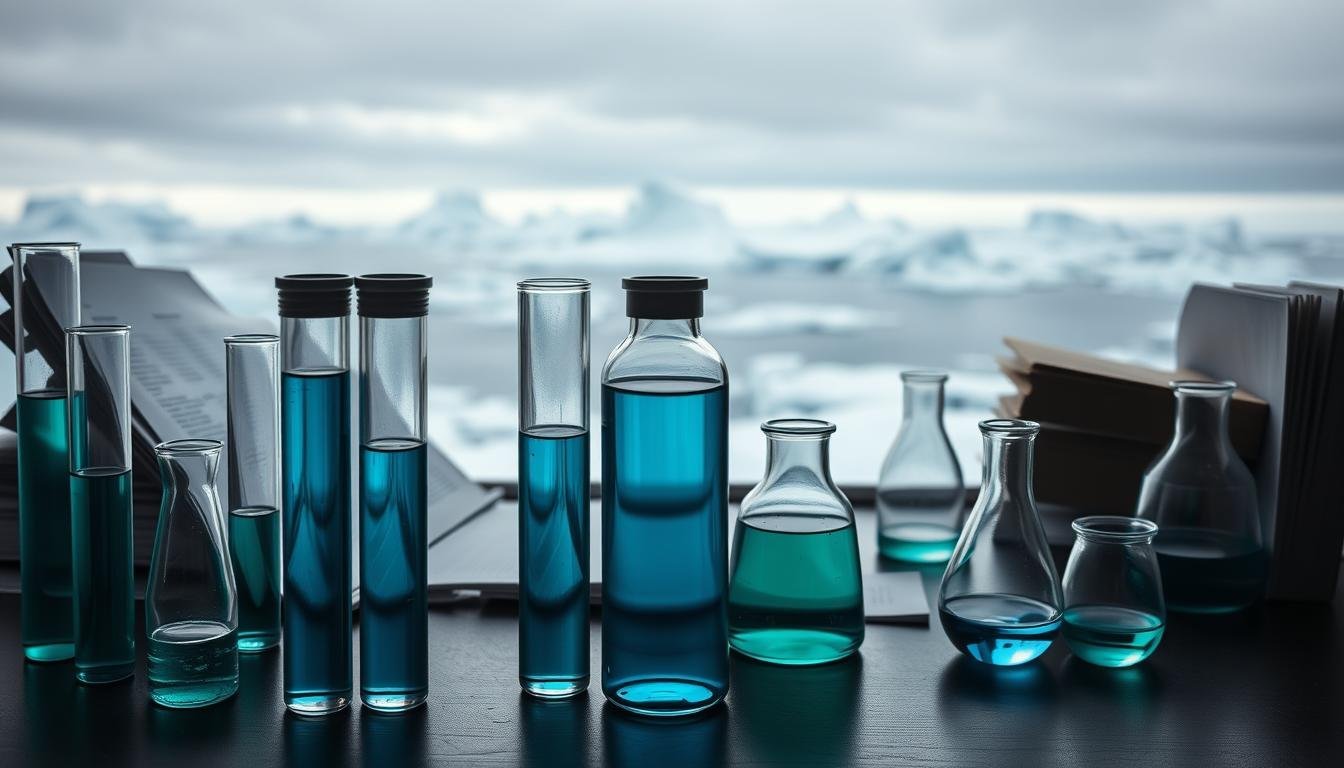Have you heard about the controversy over krill oil supplements in Europe? It’s caught the attention of many, especially those looking into its health benefits.
Krill oil is known for its omega-3 fatty acids. It’s popular for its potential to improve heart health and reduce inflammation. But, there are worries about where it comes from and its impact on the environment.
When you look into nutritional supplements, you might be curious about krill oil’s status in Europe. Are there limits on its sale or use? Knowing the rules about krill oil can guide your choices for staying healthy.
Contents
- 1 What is Krill Oil and Why is it Popular?
- 2 Is Krill Oil Banned in Europe and Why?
- 3 Environmental and Sustainability Concerns
- 4 What US Consumers Should Know About Krill Oil Products
- 5 Conclusion: Making Informed Choices About Krill Oil
- 6 FAQ
- 6.1 What is krill oil and how is it harvested?
- 6.2 Is krill oil banned in all European countries?
- 6.3 What are the nutritional benefits of krill oil?
- 6.4 How does krill oil compare to fish oil in terms of bioavailability?
- 6.5 What are the environmental concerns associated with krill oil harvesting?
- 6.6 Are there any conservation organizations that regulate krill oil harvesting?
- 6.7 What should US consumers look for when buying krill oil products?
- 6.8 Are there any potential side effects of taking krill oil supplements?
What is Krill Oil and Why is it Popular?
Many people wonder about krill oil and why it’s popular. Krill oil comes from tiny crustaceans called krill in the Antarctic’s cold waters. It’s loved for its nutritional value and health perks.
Antarctic Krill Harvesting
Krill are caught in the Antarctic using eco-friendly fishing methods. This ensures krill populations stay healthy. International groups oversee this to protect the ocean’s balance.
Nutritional Profile of Krill Oil
Krill oil is packed with nutrients like omega-3 fatty acids, phospholipids, and antioxidants. These help it offer health benefits, making it a favorite supplement.
The omega-3s in krill oil, EPA and DHA, fight inflammation. They’re linked to phospholipids, which might help your body absorb them better.
Bioavailability Compared to Fish Oil
Krill oil is compared to fish oil because they both have omega-3s. But krill oil’s phospholipid-bound fatty acids might be more easily absorbed than fish oil’s triglycerides.
Knowing about krill oil’s benefits and what’s in it can guide your health choices.
Is Krill Oil Banned in Europe and Why?
Krill oil is not as easy to find in Europe as it is in the US. This is because of strict rules. These rules affect how krill oil supplements are approved and sold.

The Novel Food Regulation (NFR) is a big reason for krill oil’s limited availability in Europe. It was put in place in 2018. It says foods not commonly eaten in the EU before 1997 need safety checks before they can be sold. Since krill oil is new, it must go through this process.
Manufacturers need to show that krill oil is safe and works well.
Specific Countries with Restrictions
Even though the EU has rules, some countries have their own. For example, Germany and France are very strict about dietary supplements. They want more proof and tests to make sure products are safe.
Scientific Evaluations and Findings
Science is key in deciding if krill oil is okay to sell. The European Food Safety Authority (EFSA) checks out all the data. They look at the oil’s makeup, any possible dangers, and how much to take.
Public Health Considerations
Health is also a big concern. European health groups worry about side effects like stomach problems and allergies. So, krill oil products have to be labeled carefully. They must tell you how much to take and warn about possible issues.
In short, krill oil rules in Europe are complex. They depend on things like new food laws, country rules, science, and health worries. Knowing about these can help you choose krill oil products wisely.
Environmental and Sustainability Concerns
People worldwide are worried about the impact of krill harvesting on the environment. As more krill oil is needed, we must look at the issues it raises. These include how it affects the planet and its resources.
Krill is crucial for many sea creatures, like whales, seals, and penguins. Taking krill away can harm these animals and the ocean’s balance. Over-harvesting krill might make these species malnourished and fewer in number.
Carbon Sequestration Function
Krill helps the ocean absorb carbon dioxide. When krill die, they carry carbon to the ocean floor. This action helps fight climate change by lowering carbon in the air. But, if krill numbers drop, this natural process could be harmed.
Current Harvesting Practices and Volumes
The way krill is caught and how much is a big topic of discussion. The Commission for the Conservation of Antarctic Marine Living Resources (CCAMLR) tries to set limits. Yet, some think these limits are too loose to protect krill and the ocean’s health. It’s important for the krill oil industry to follow green practices.
Conservation Organization Positions
Groups like the World Wildlife Fund (WWF) have different views on krill fishing. Some want stricter rules and better protection for krill and its home. Others support the current ways of managing krill fishing. The WWF works with the industry and governments to make krill fishing more sustainable.
For krill oil to be sustainable, we need to find a balance. This means:
- Watching krill numbers and adjusting catches
- Keeping safe places for krill and its friends
- Using fishing methods that are kind to the sea
- Studying how krill affects the ocean
By tackling these issues and adopting greener ways, the krill oil industry can thrive. It can do so while keeping the Antarctic ecosystem safe for future generations.
What US Consumers Should Know About Krill Oil Products
It’s important to understand krill oil and its rules in the US. Knowing the good and bad about krill oil helps you make smart choices.
Krill oil is full of omega-3s and antioxidants. These can help your heart and reduce swelling. But, some people might feel sick in their stomach or have allergies.
When you buy krill oil, think about a few things. Look for products that don’t harm the environment. Also, check if they have third-party stamps of approval for quality.
- Check the label for the amount of omega-3 fatty acids and antioxidants.
- Look for products with third-party certifications like IFOS or MSC.
- Be aware of the sourcing and harvesting practices.
The US FDA watches over krill oil supplements. They make sure the products are safe and labeled right. Companies must follow Good Manufacturing Practices (GMPs).
| Factor | Description | Importance |
|---|---|---|
| Sourcing | Sustainably harvested krill | High |
| Certifications | Third-party certifications like IFOS or MSC | High |
| Label Claims | Accurate labeling of omega-3 content and other nutrients | High |
Knowing about krill oil’s benefits, risks, and rules helps you choose wisely. This way, you can take care of your health and well-being.
Conclusion: Making Informed Choices About Krill Oil
Exploring krill oil shows us the importance of making smart choices. Its health benefits are well-known, but we must also think about its impact on the environment.
When picking a krill oil supplement, look at the company’s commitment to the environment. Choose brands that harvest krill responsibly and are open about where they get their krill.
You now know that krill oil isn’t banned in Europe. Instead, it’s regulated to protect the environment. Knowing this helps you make better choices for your health and the planet.
In the end, choosing krill oil wisely means weighing its benefits against its environmental cost. By supporting companies that care about the planet, you can help the environment while improving your health.
FAQ
What is krill oil and how is it harvested?
Krill oil comes from Antarctic krill, small crustaceans in the Southern Ocean. It’s caught with special nets that target krill groups. This usually happens in Antarctic waters.
Is krill oil banned in all European countries?
No, krill oil isn’t banned everywhere in Europe. But, its sale and use face rules due to food laws and environmental worries.
What are the nutritional benefits of krill oil?
Krill oil is packed with omega-3 fatty acids, like EPA and DHA. It also has phospholipids. These nutrients are thought to be more easily absorbed than those in fish oil.
How does krill oil compare to fish oil in terms of bioavailability?
Krill oil is seen as more bioavailable than fish oil. This is because of its phospholipid content. It might help the body absorb omega-3s better.
What are the environmental concerns associated with krill oil harvesting?
Harvesting krill oil worries many because it’s a key food for whales, seals, and penguins. Too much harvesting could hurt these animals and the ocean’s balance.
Are there any conservation organizations that regulate krill oil harvesting?
Yes, groups like the Commission for the Conservation of Antarctic Marine Living Resources (CCAMLR) watch over krill fishing. They make sure it’s done right and doesn’t harm the Antarctic ecosystem.
What should US consumers look for when buying krill oil products?
US buyers should look for products with third-party certifications, like the International Fish Oil Standards (IFOS). Make sure the product is sustainably made and free from contaminants.
Are there any potential side effects of taking krill oil supplements?
Krill oil supplements are usually safe but can cause issues in some. These include stomach problems, a fishy taste, and allergies in shellfish-sensitive people.

Marcellus Stark is an investigative journalist from San Francisco, USA. He writes about global bans, rules, and unusual laws. He shares clear, interesting, and well-researched stories that help readers understand surprising facts worldwide.

